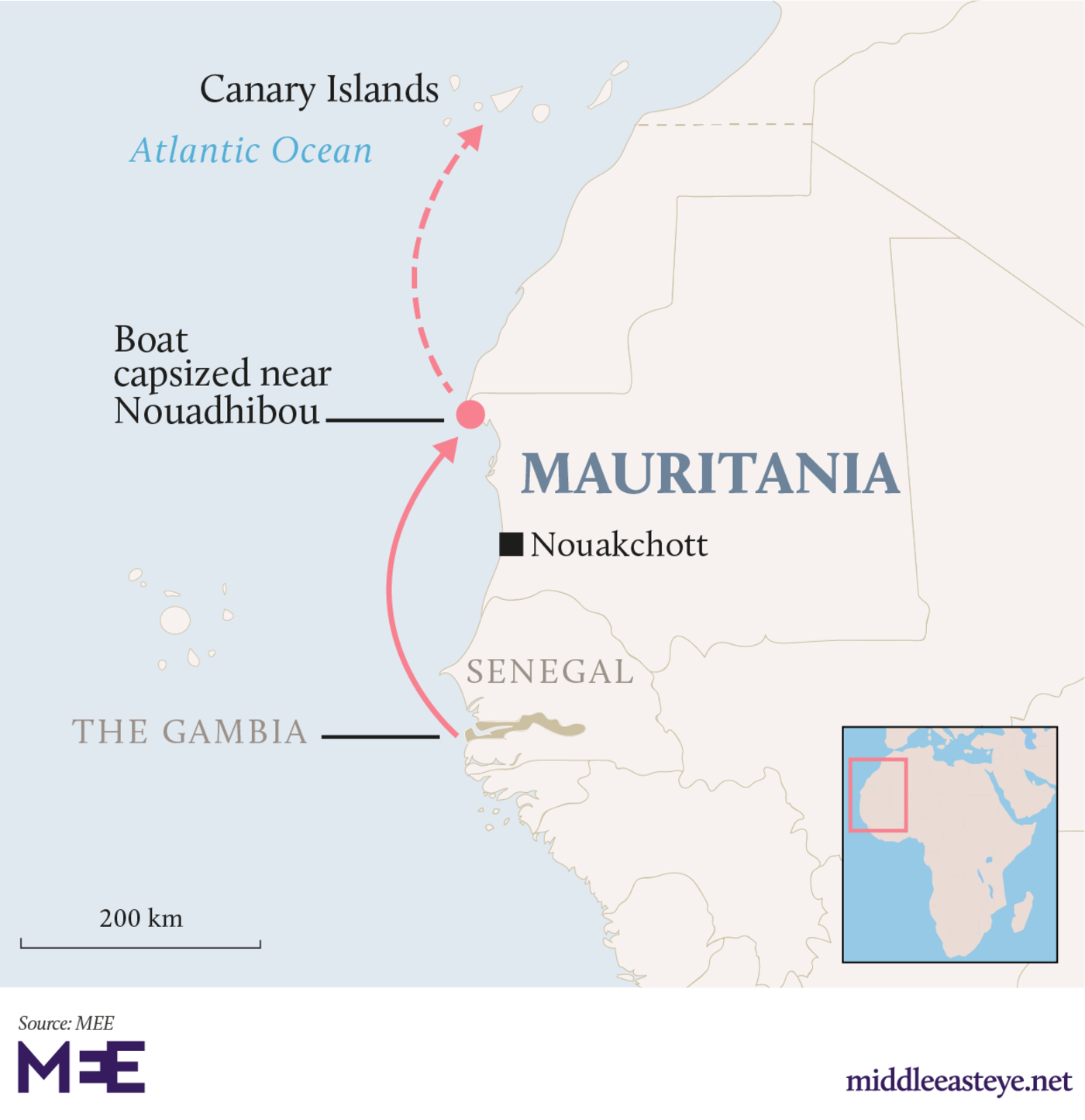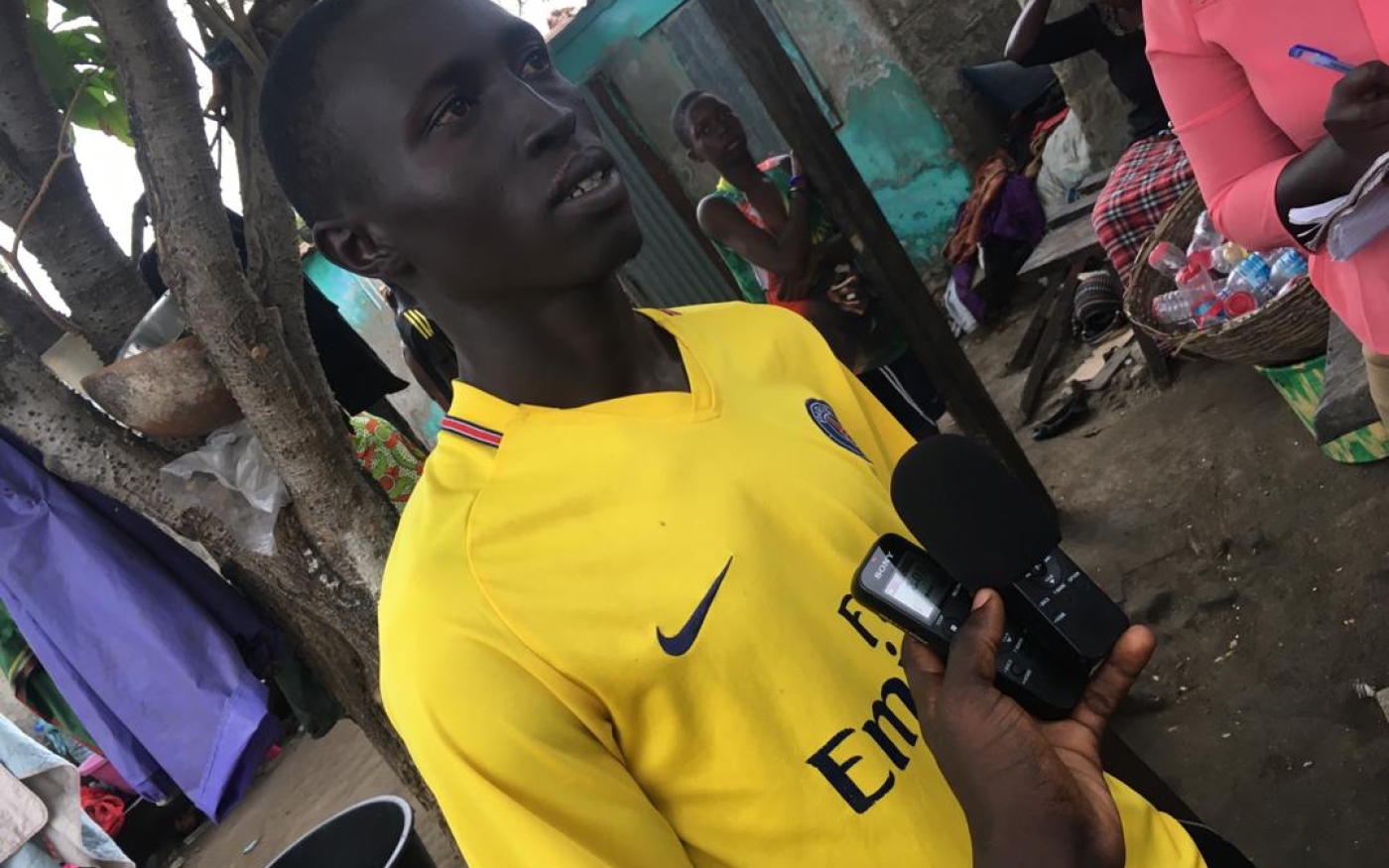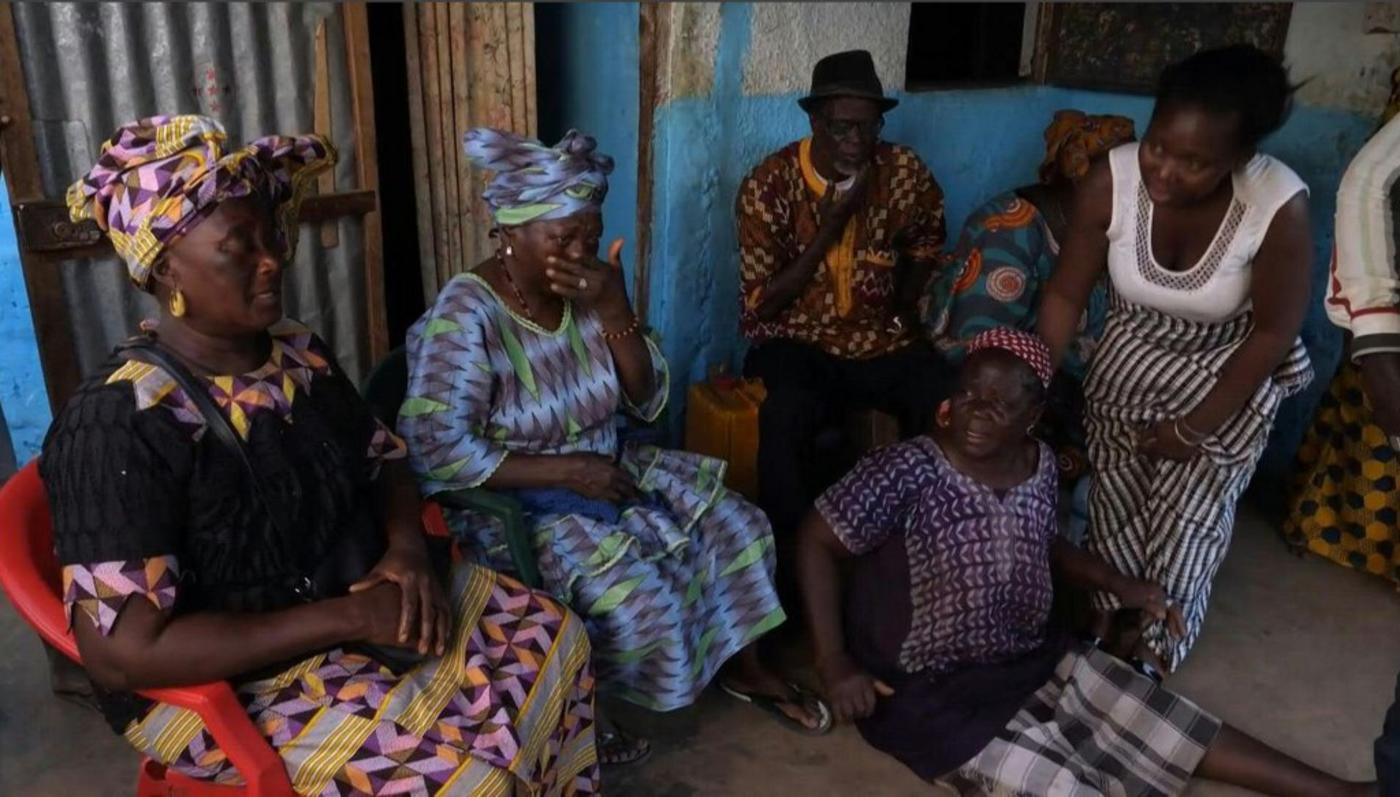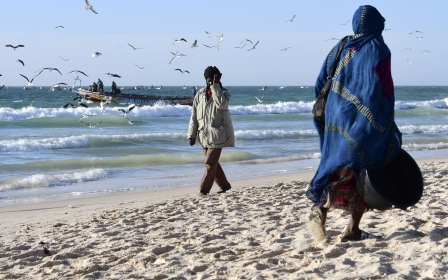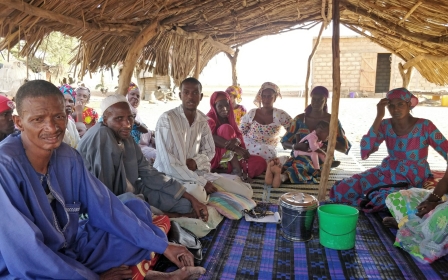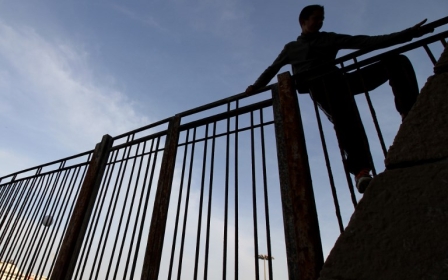Gambian survivors of Atlantic sinking say they would risk same journey again
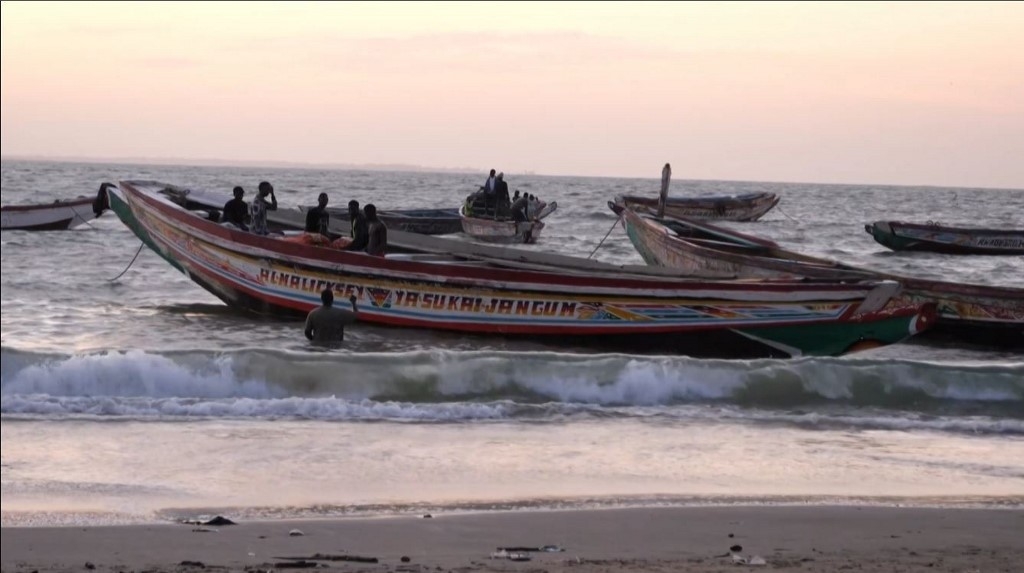
Grinding poverty is pushing Gambians to take a perilous Atlantic sea-route in an attempt to reach Europe, people rescued from ships off the coast of Mauritania have told Middle East Eye.
At least 62 Gambians died when a vessel capsized off Mauritania last Wednesday while attempting to reach the Canary Islands, which are part of Spain. Days later a boat carrying nearly 200 people from the tiny West African nation was intercepted by the Mauritanian coastguard.
One survivor who swam to safety from the shipwreck told MEE that he was prepared to risk his life again as getting to a European country offered "the only solution" to escape from poverty.
Meanwhile, a government spokesperson told MEE that The Gambia - the smallest country on the African continent - was taking steps to raise living standards to prevent people leaving but that social media were also a factor in luring people to Europe.
With a population of just two million, the country has had one of the highest rates of irregular migration to Europe in recent years. Over 35,000 Gambians reached European countries by irregular means between 2014 and 2018, according to the International Organisation of Migration.
New MEE newsletter: Jerusalem Dispatch
Sign up to get the latest insights and analysis on Israel-Palestine, alongside Turkey Unpacked and other MEE newsletters
Overseas remittances are a key feature of the country's economy, accounting for over 20 percent of the country's GDP.
It was on 27 November that a small vessel carrying fisherman Assan Ndure, 25, and dozens of other Gambians left Barra, a bustling town lying at the mouth of the vast River Gambia, opposite the capital Banjul, and headed out onto the Atlantic.
After paying a smuggler 30,000 Dalasis ($585), Ndure snuck out of his home and onto the boat without his family knowing.
The boat had lain unfinished in the water for six years before being hurriedly readied for the intended trip of several thousand kilometres north to the Canary Islands, which lie off the coast of Morocco, local fishermen told MEE.
Fuel running out
A week later and with fuel running out, the captain decided to make landfall on the Mauritanian coast, Ndure said.
"When we turned to head back to the coast, a huge wave hit and covered the boat," Ndure said. "This was when the boat was capsized."
Reports have indicated that the vessel may have also hit a rock.
A group managed to swim ashore near the Mauritanian town of Nouadhibou, alerting soldiers. By the time a rescue boat and helicopter appeared it was too late.
"A lot died right there in the water. They found them all drowned," Ndure said.
At least 62 people died while 83 managed to swim to shore, according to the International Organisation of Migration. Nine women and a two-year-old baby were among the dead.
"I cried for them, and am still crying because most of my friends did not survive the accident. I'm in pain still," Ndure said.
The 'back way'
Yet Ndure said that he was prepared to take his chances again through the "back way," the treacherous routes by sea via the Atlantic or across the Sahara Desert that young West Africans traverse in the hope of making it to Europe.
"Reaching Europe would be the only solution to help my family," he said.
But his mother, Saniabou Joof, was less enthusiastic. "I know my son is ambitious, and he wants to make us get away from poverty, but we can't allow him to make this journey. What if he died?" she said.
"The Gambian government needs to help our children," she said, weeping.
The tragedy came amid renewed efforts by West Africans to make the voyage up the Atlantic coast towards Europe.
"Over the last two years there has been an increase in the numbers of boats leaving the West Africa Coast, not just from The Gambia but from the Gulf of Guinea, from Senegal and Mauritania," said Florence Kim from the IOM Regional Office for Central and West Africa.
"It's quite hard to reach the Canary Islands from the African coast now as boats are often intercepted by Mauritanian, Gambian and Senegalese coast guards."
Two days after the boat capsized, another vessel, this time carrying 192 Gambians, was intercepted by a Mauritanian coast guard vessel.
According to Lamine Fall, a 23-year-old student who was on board, the boat came to a halt on Friday morning after the coastguard ship fired warning shots in the air, before towing it to shore.
Asked why he left home, Fall said: "I decided to leave the country because of poverty. We are poor, especially my family. My dream could have come true if I had reached Spain. I have qualifications but no job, so my aim was to leave for Europe and help my family."
Following a vow by Gambian President Adama Barrow to punish traffickers, police arrested Alhagie Babucarr Faye, community leader of Barra, and his son in connection with smuggling. Faye has since been released on bail.
Social media influence
In an effort to get to the bottom of the 4 December incident, the government also sent investigators to Mauritania and has given each family of victims 104, 000 Dalasis ($2,029) and handed out 150 bags of rice.
However, many still feel that despite returning to democracy in 2017 after years of dictatorship under Yaya Jammeh, the government has yet to come good on its promise of providing job opportunities.
But Ebrima Sankareh, a government spokesperson, said that the government was trying to "change the narrative" over migration as young people were coming under the "influence" of social media posts talking up life in Europe.
"There is a problem with the perception they have that if you are in Europe you have made it. That's not true. Our government is going to change the narrative," he said.
Sankareh added that the government was trying to create jobs for young people in fishing and construction as a way to stop them from leaving.
"We have a lot of projects that would make youths [want to] stay here and make it in this country," he said.
Middle East Eye delivers independent and unrivalled coverage and analysis of the Middle East, North Africa and beyond. To learn more about republishing this content and the associated fees, please fill out this form. More about MEE can be found here.


